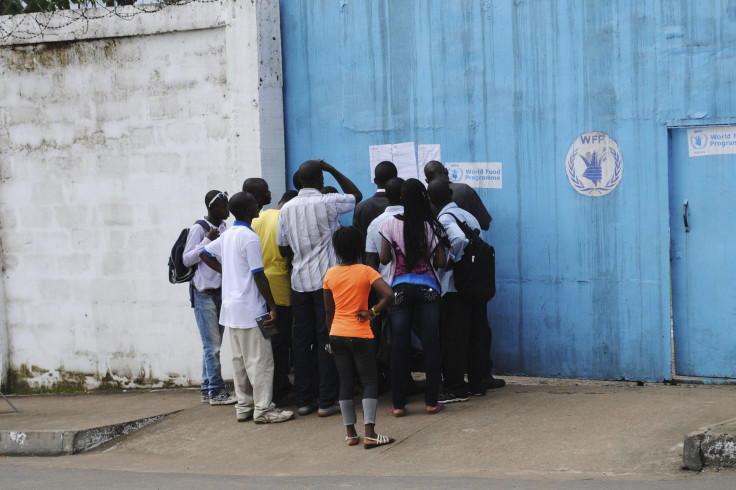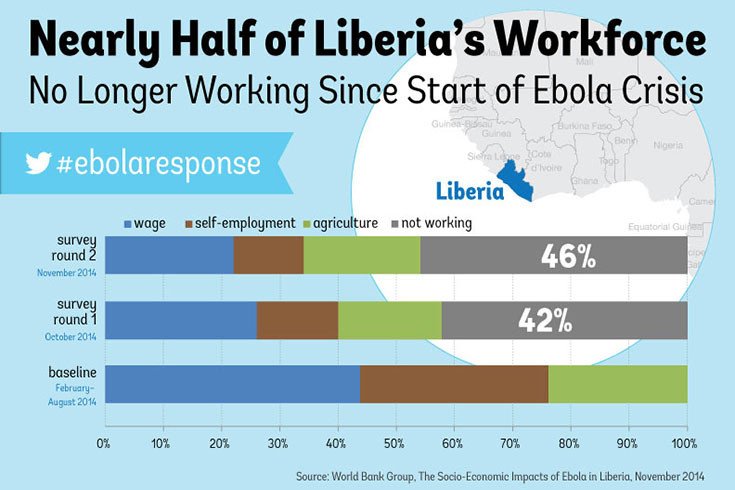Half Of Liberian Workforce Not Working Due To Ebola Virus: World Bank

Even as the Ebola outbreak seems to be slowing, the economic consequences are only just beginning. In Liberia, which has experienced more than 7,000 cases of the virus and 2,500 related deaths, nearly half of the workforce hasn’t been working. These and other startling statistics from the World Bank show that the most difficult parts of recovery may still be ahead.
“Even those living in the most remote communities in Liberia, where Ebola has not been detected, are suffering the economic side effects of this terrible disease,” said Ana Revenga, of the World Bank, in a Wednesday statement.
“Relief efforts must focus not only on those directly affected by the virus but also on those in the poorest communities for whom market access, mobility and food security continue to get worse,” she said.
Working with Liberian authorities and the Gallup Organization, the World Bank surveyed more than 4,000 households using mobile phones. They found that nearly half the working population, especially agricultural workers in rural areas, is no longer working.

But employment isn’t the only economic feature affected. According to the data, food prices in Liberia were more than 40 percent higher than usual in October, and more than 90 percent of residents surveyed said they were worried about having enough to eat.
In September, the United Nations made plans to send 65,000 metric tons of food assistance to West Africa to help stop an impending food crisis.
“The Ebola outbreak is having an acute macroeconomic and social impact on three already fragile countries in West Africa,” International Monetary Fund representative Gerry Rice, said in a recent statement.
Liberia had been fraught with civil wars in previous generations, the most recent of which ended in 2003. Since then, President Johnson-Sirleaf had been working to recover, and the economy has been making great strides.
Before the outbreak, the World Bank projected Liberia’s economy to increase by 5.9 percent, but as with other affected countries, this has been revised down drastically. Now, economists are expecting its GDP to increase just 2.5 percent.
© Copyright IBTimes 2024. All rights reserved.






















